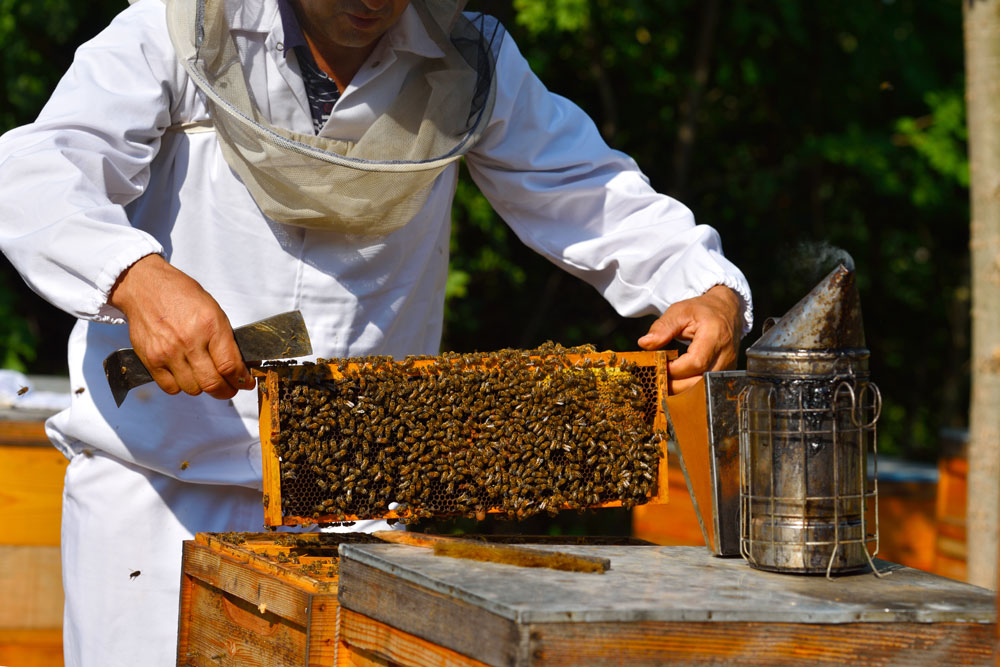Beekeeping: An Introduction to the World of Honeybees
If you’ve ever been fascinated by bees and their important role in our ecosystem, beekeeping may be a rewarding hobby for you. Not only does it provide an opportunity to learn about these incredible insects, but it also offers the chance to harvest your own honey and contribute to the preservation of pollinators. In this article, we will give you a brief overview of what beekeeping entails.
Firstly, let’s understand why honeybees are so important. Bees play a critical role in pollinating flowering plants, including many crops that make up a significant portion of our food supply. Unfortunately, bee populations have been declining due to various factors such as habitat loss, pesticides, and climate change. Beekeeping can help support local bee populations and ensure their survival.
To start with beekeeping, you’ll need some essential equipment. The most crucial item is a hive or beehive where the bees will live. Hives typically consist of wooden boxes containing frames on which bees build their wax comb and store honey. Other necessary tools include protective clothing such as veils and gloves to keep you safe from stings while inspecting the hive.
Before getting your bees, it’s vital to educate yourself about their behavior and needs. You can join local beekeeping associations or take courses offered by experienced beekeepers who can teach you valuable skills like how to handle bees gently and safely.
Once you’re ready to get started with your own colony, there are two common ways of obtaining bees: purchasing packages or buying nucleus colonies (nucs). Packages usually consist of thousands of worker bees along with a queen in a screened box. Nucs are small colonies comprising several frames filled with brood (young developing bees), worker bees, stores of honey/pollen, and an established queen.
Proper care for your hive involves regular inspections for signs of disease or pests like Varroa mites. You will also need to provide your bees with adequate food, especially during times when nectar and pollen sources may be scarce.
Harvesting honey is one of the most rewarding aspects of beekeeping. Typically, beekeepers wait until the hive has produced surplus honey that can be safely extracted without harming the colony. Honey extraction methods vary but usually involve removing frames from the hive and spinning them in a centrifuge to separate honey from the comb.
Beekeeping is not just about honey production; it’s also about supporting these essential pollinators for a healthier environment. By providing a safe haven for bees, you’ll contribute to maintaining biodiversity and ensuring our food security.
In conclusion, beekeeping offers an opportunity to connect with nature while making a positive impact on our environment. It requires knowledge, patience, and dedication but can be incredibly fulfilling. Whether you’re interested in harvesting your own honey or simply want to help safeguard our precious pollinators, beekeeping is a valuable endeavor that anyone can embark upon with proper guidance and resources.


Leave a comment